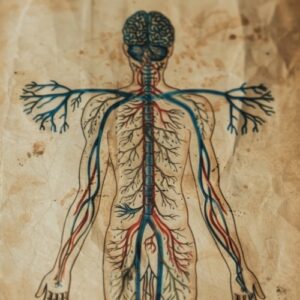Depression is a complex and multifaceted mental health condition that affects millions of people worldwide. Traditional treatments, such as medication and talk therapy, can be effective for many individuals, but there are cases where these approaches alone may not fully address the underlying issues contributing to depression. Integrative somatic therapy offers a holistic approach that goes beyond traditional methods, addressing the body-mind connection and providing a pathway to deep emotional healing. In this blog post, we will explore how integrative somatic therapy can be an effective treatment for depression, highlighting its unique benefits and how it can complement other therapeutic approaches.
Understanding Integrative Somatic Therapy
What is Integrative Somatic Therapy?
Integrative somatic therapy is a therapeutic approach that combines elements of somatic (body-centered) practices with traditional psychotherapy. The term “somatic” comes from the Greek word “soma,” meaning body, and refers to the idea that the body and mind are interconnected and that emotional experiences are stored not just in the mind but also in the body.
In integrative somatic therapy, the therapist works with both the physical and emotional aspects of the client’s experience. This approach may include techniques such as breathwork, mindful movement, body awareness, and touch-based therapies, all aimed at helping the client become more attuned to their bodily sensations and emotions. By bringing awareness to the body, integrative somatic therapy helps individuals access and process deep-seated emotions, release tension, and promote overall well-being.
The Body-Mind Connection in Depression
Depression is often viewed as a purely psychological condition, but research has increasingly shown that it is also deeply connected to the body. Symptoms of depression, such as fatigue, chronic pain, and sleep disturbances, can manifest physically, indicating that the body is holding onto emotional pain or stress. This physical manifestation of depression suggests that addressing the body can be a crucial component of effective treatment.
Integrative somatic therapy recognizes this body-mind connection and seeks to address depression by working with both the body and the mind. By helping clients become more aware of their bodily sensations and the emotions associated with them, this approach can uncover and heal the root causes of depression, leading to more lasting and meaningful recovery.
How Integrative Somatic Therapy Helps with Depression
1. Releasing Stored Emotions
One of the key principles of integrative somatic therapy is that emotions are stored in the body as physical sensations. These stored emotions can create blockages that contribute to feelings of depression. For example, someone who has experienced trauma may carry tension in their shoulders, chest, or stomach, which can lead to a sense of heaviness or sadness.
Integrative somatic therapy helps clients identify these areas of tension and encourages the release of stored emotions through gentle movement, breathwork, and body awareness exercises. By physically releasing these emotions, clients can experience a sense of relief and a reduction in depressive symptoms.
2. Enhancing Emotional Awareness
Depression is often accompanied by a sense of numbness or disconnection from emotions. This emotional disconnection can make it difficult for individuals to understand or process their feelings, leading to a cycle of despair and hopelessness. Integrative somatic therapy enhances emotional awareness by helping clients tune into their bodily sensations and the emotions associated with them.
Through practices such as body scanning and mindfulness, clients learn to recognize and name their emotions, even those that may have been suppressed or ignored. This increased emotional awareness can lead to greater self-understanding and the ability to process and integrate difficult emotions, reducing the intensity and frequency of depressive episodes.
3. Reducing Physical Symptoms of Depression
Depression often manifests as physical symptoms, including chronic pain, fatigue, and digestive issues. These symptoms can create a feedback loop, where physical discomfort exacerbates emotional distress, and vice versa. Integrative somatic therapy addresses the physical symptoms of depression by promoting relaxation, improving circulation, and releasing tension in the body.
For example, a client with depression-related fatigue may benefit from gentle movement practices that increase energy flow and reduce feelings of lethargy. Similarly, breathwork can help regulate the nervous system, reducing the physical symptoms of anxiety and depression. By addressing the physical aspects of depression, integrative somatic therapy can break the cycle of pain and discomfort, leading to improved overall well-being.
4. Supporting Nervous System Regulation
The autonomic nervous system, which controls the body’s stress response, plays a significant role in depression. When the nervous system is dysregulated—whether through chronic stress, trauma, or other factors—it can contribute to feelings of depression and anxiety. Integrative somatic therapy supports nervous system regulation by helping clients shift from a state of hyperarousal (fight or flight) or hypoarousal (freeze) to a state of balance and calm.
Through techniques such as grounding exercises, mindful breathing, and movement, clients learn to regulate their nervous system and build resilience to stress. This regulation helps to stabilize mood and reduce the physiological symptoms of depression, creating a foundation for emotional healing.
5. Building Resilience and Empowerment
Depression often leaves individuals feeling powerless and overwhelmed by their emotions. Integrative somatic therapy empowers clients by helping them reconnect with their bodies and develop a sense of agency over their emotional and physical experiences. By learning to listen to and trust their body’s signals, clients can build resilience to future stressors and challenges.
This sense of empowerment is crucial for long-term recovery from depression. As clients become more attuned to their body-mind connection, they gain the tools to manage their emotions, reduce the impact of stress, and take proactive steps toward their well-being. This empowerment fosters a sense of hope and optimism, which is essential for overcoming depression.
Integrating Somatic Therapy with Other Treatments for Depression
Complementing Traditional Psychotherapy
Integrative somatic therapy is often used in conjunction with traditional psychotherapy, such as Cognitive Behavioral Therapy (CBT) or psychodynamic therapy. While traditional therapy focuses on changing thought patterns and exploring past experiences, somatic therapy adds a physical dimension to the healing process. This combination allows clients to address both the cognitive and physical aspects of depression, leading to more comprehensive and effective treatment.
Enhancing Medication Management
For some individuals, medication is a necessary component of depression treatment. Integrative somatic therapy can enhance the effectiveness of medication by addressing the physical and emotional symptoms that medication alone may not fully resolve. For example, somatic therapy can help alleviate the physical side effects of medication, such as tension or fatigue, and support the emotional processing that is essential for recovery.
Supporting Holistic Wellness
Integrative somatic therapy is also a valuable addition to a holistic wellness plan that includes diet, exercise, mindfulness practices, and social support. By addressing the body-mind connection, somatic therapy helps clients integrate these various aspects of wellness into a cohesive and sustainable approach to mental health. This holistic approach not only treats the symptoms of depression but also promotes long-term well-being and resilience.
Personal Stories: Healing Depression with Integrative Somatic Therapy
1. Emma’s Journey to Emotional Release
Emma, a resident of Dublin, had been struggling with depression for several years. Despite attending traditional therapy and taking medication, she still felt a deep sense of sadness and disconnection from her emotions. During her integrative somatic therapy sessions, Emma learned to tune into her body and recognize the tension she was holding in her chest and abdomen. Through gentle movement and breathwork, she was able to release the stored emotions that had been contributing to her depression. Over time, Emma experienced a significant reduction in her depressive symptoms and developed a greater sense of connection to her emotions and body.
2. Mark’s Path to Physical and Emotional Healing
Mark, from Naas, had been dealing with chronic pain and fatigue as part of his depression. These physical symptoms made it difficult for him to engage in daily activities and contributed to his feelings of hopelessness. Integrative somatic therapy helped Mark to understand the connection between his physical pain and his emotional state. Through body awareness exercises and mindful movement, he was able to release tension and improve his physical symptoms. Mark also learned techniques for regulating his nervous system, which helped to stabilize his mood and reduce his feelings of depression. As a result, Mark regained his energy and motivation, allowing him to participate more fully in his life.
Experiencing Integrative Somatic Therapy for Depression in Dublin
For those living in Dublin, Naas, or Newbridge, integrative somatic therapy offers a unique and effective approach to treating depression. This therapy is available through experienced practitioners who specialize in combining somatic practices with traditional psychotherapy to address the root causes of depression.
Finding an Integrative Somatic Therapist in Dublin
When looking for an integrative somatic therapist in Dublin, it’s important to choose someone who is experienced and certified in both somatic practices and psychotherapy. Many practitioners offer sessions in wellness centers, holistic clinics, or private practices. It’s advisable to research practitioners, read reviews, and perhaps meet them for a consultation before booking a session.
What to Expect During an Integrative Somatic Therapy Session
During an integrative somatic therapy session, you will typically begin with a discussion of your current emotional and physical state. The therapist may guide you through body awareness exercises, breathwork, or gentle movement practices to help you connect with your bodily sensations and emotions. Sessions are typically 60 to 90 minutes long, and the therapist will tailor the approach to your specific needs and goals.
Integrative Somatic Therapy in Dublin: Enhancing Your Healing Journey
Whether you are dealing with chronic depression or looking to complement your existing treatment plan, integrative somatic therapy in Dublin offers a holistic approach that can lead to deep emotional healing. By addressing both the body and mind, this therapy can provide the tools and support needed to overcome depression and achieve long-lasting well-being.
Conclusion: Embracing Integrative Somatic Therapy for Depression
Integrative somatic therapy offers a powerful and holistic approach to treating depression by addressing the body-mind connection. Through techniques such as emotional release, nervous system regulation, and body awareness, this therapy helps individuals access and heal the underlying causes of depression. For those in Dublin, Naas, and Newbridge, integrative somatic therapy provides an effective and complementary treatment option that can lead to profound emotional healing and recovery. If you’re ready to explore this approach to depression, contact Abi Beri to schedule your consultation and begin your journey to holistic well-being.








